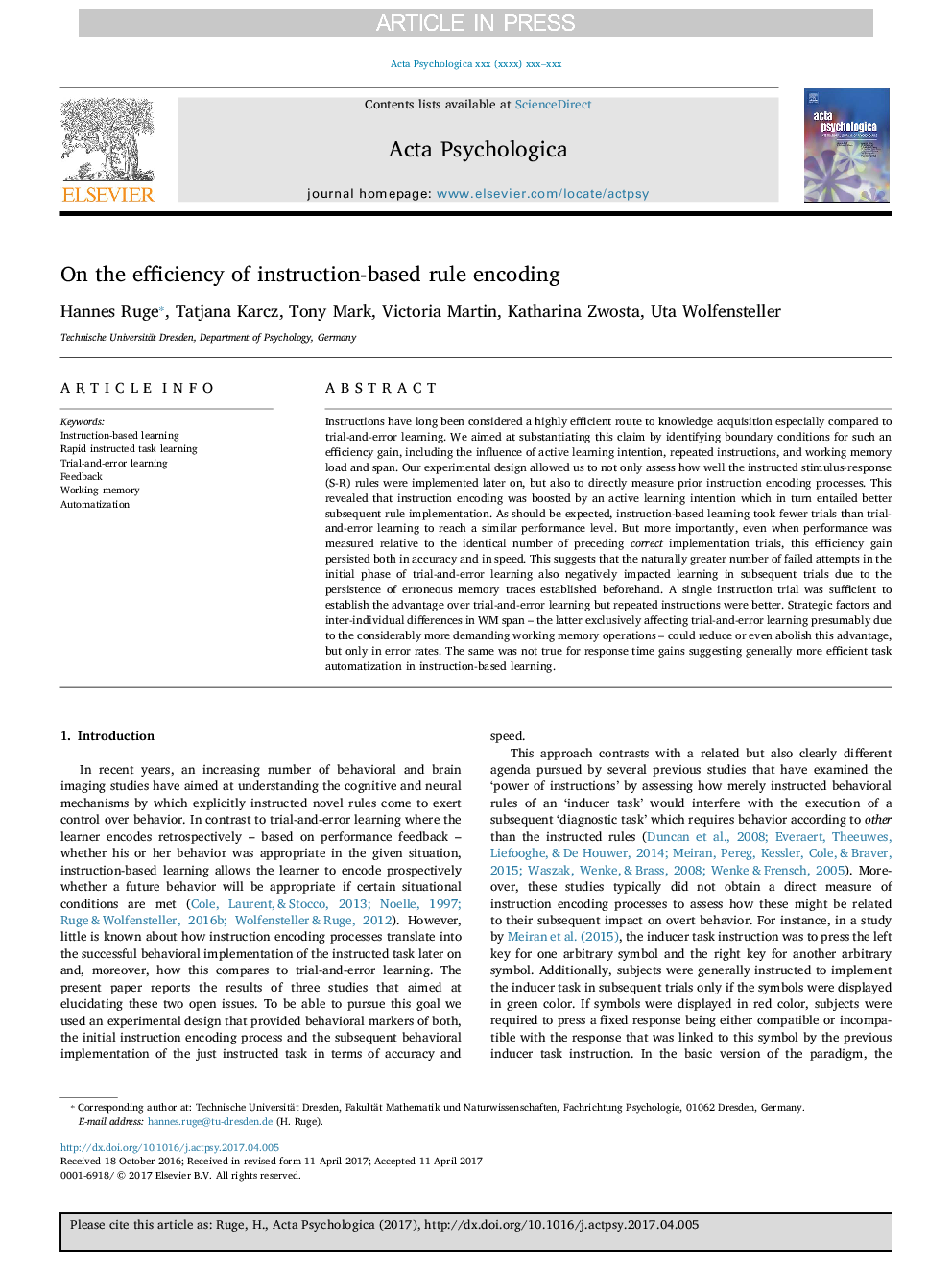ترجمه فارسی عنوان مقاله
در کارآیی کدگذاری قوانین مبتنی بر دستورالعمل
عنوان انگلیسی
On the efficiency of instruction-based rule encoding
| کد مقاله | سال انتشار | تعداد صفحات مقاله انگلیسی |
|---|---|---|
| 107266 | 2018 | 16 صفحه PDF |
منبع

Publisher : Elsevier - Science Direct (الزویر - ساینس دایرکت)
Journal : Acta Psychologica, Volume 184, March 2018, Pages 4-19
ترجمه کلمات کلیدی
آموزش مبتنی بر یادگیری، سریع یادگیری وظیفه آموزش، یادگیری آزمایشی و خطا، بازخورد، حافظه کاری، اتوماسیون
کلمات کلیدی انگلیسی
Instruction-based learning; Rapid instructed task learning; Trial-and-error learning; Feedback; Working memory; Automatization;

